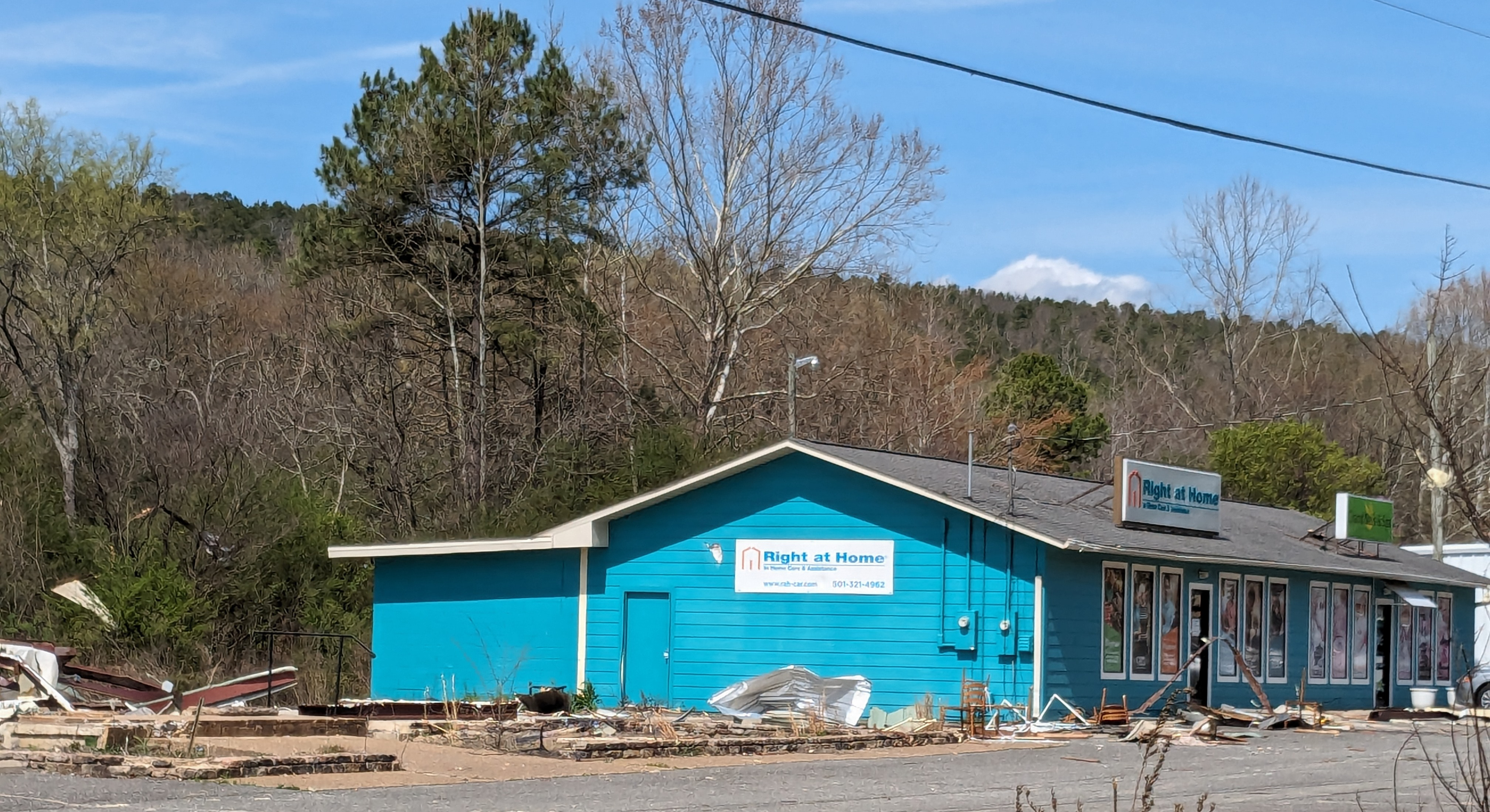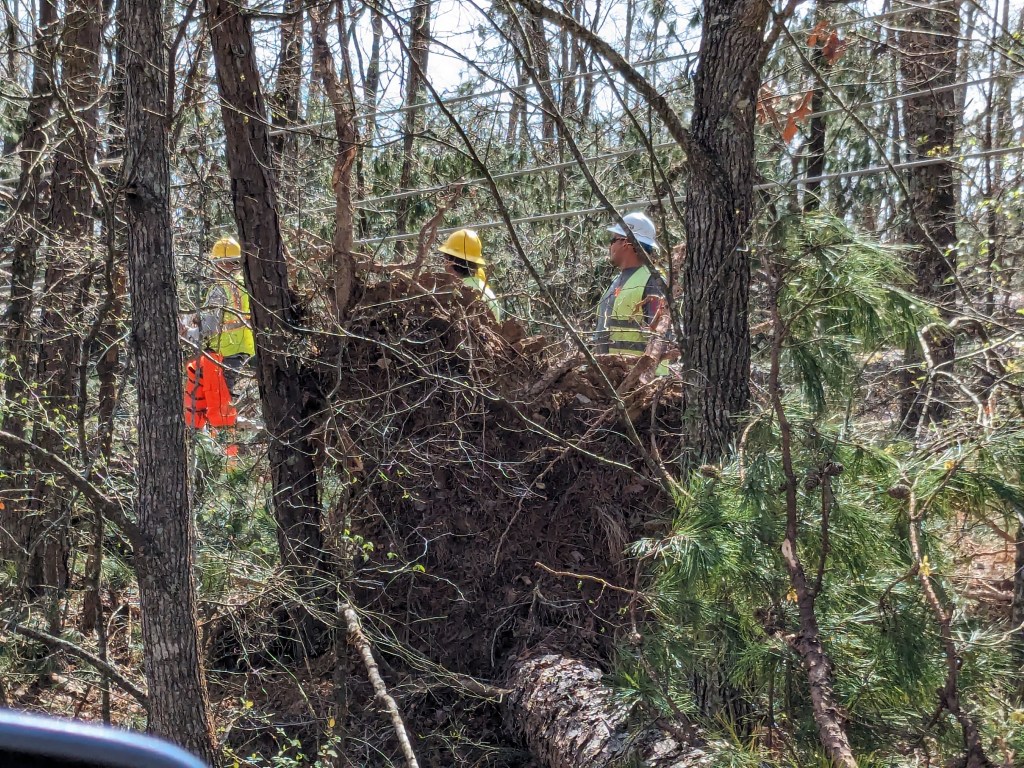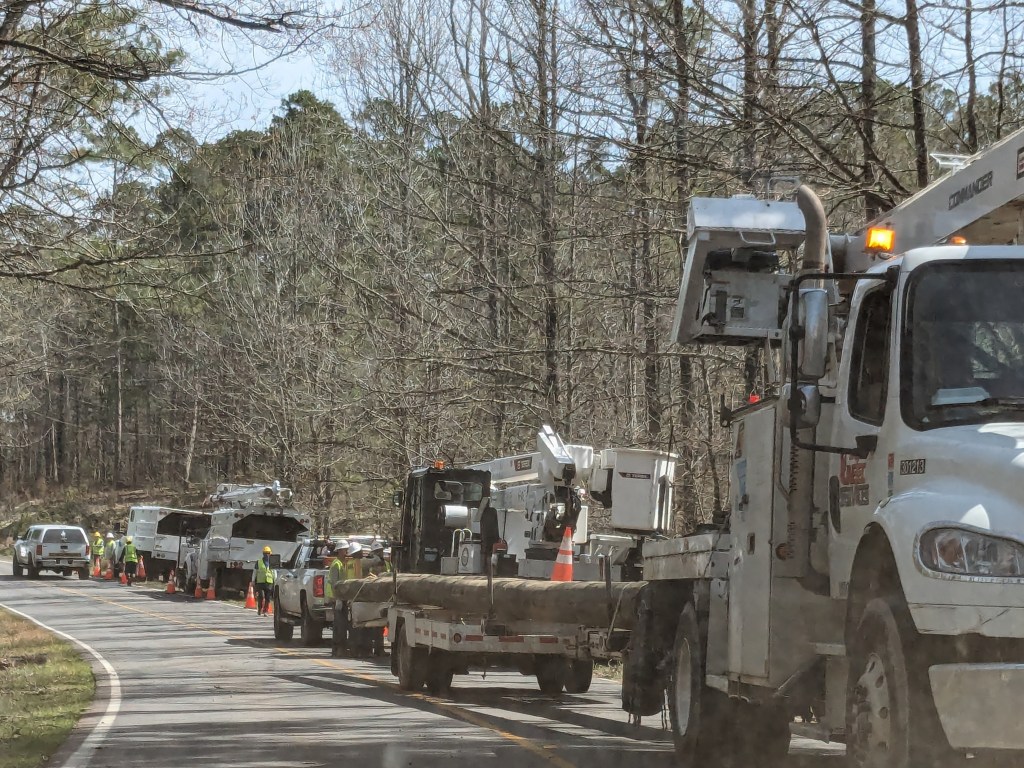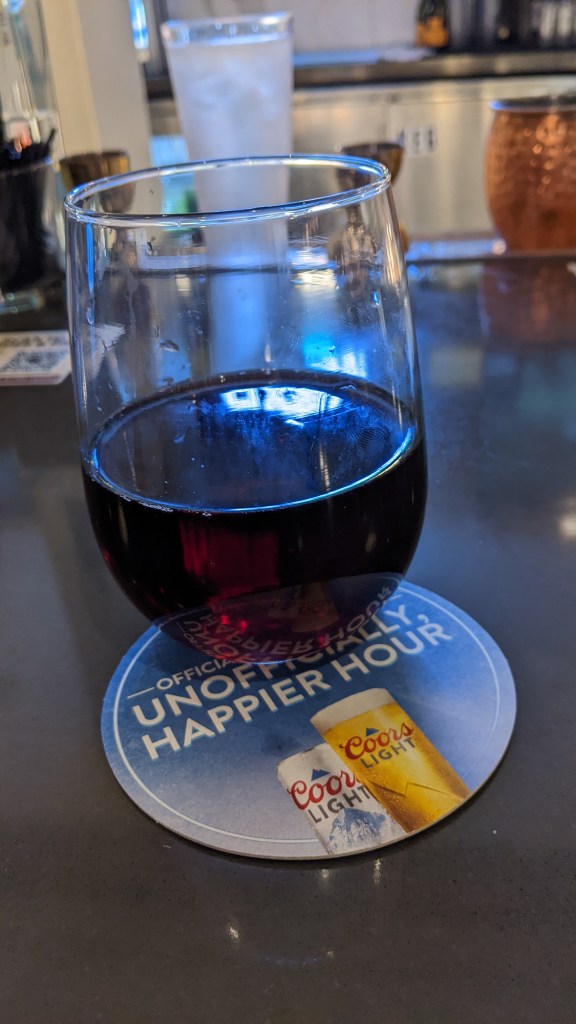I awoke early this morning – the clock read 7:00.
A few minutes later, I was drinking coffee as I relished the fact that I had no plans for the day. I thought happily that I could be as lazy as I wished on this chilly, grey morning in Arkansas.
However, when I realized that today was December 7 and remembered the impact that day had on my father, my family, the citizens of the United States and the world community, I reassessed my plans.
By then, it was nearly 7:55 a.m. and I realized that was the time, in Hawaii 84 years ago, that the first wave of Japanese bombers reached Pearl Harbor. A second wave of bombers arrived at 8:50 that morning, and those 350-plus enemy aircraft resulted in the loss of 2,403 American lives and the destruction of the USS Arizona in the harbor. Five of eight battleships, three destroyers, and seven other ships in the area were either sunk or “rendered useless,” and more than 200 aircraft were destroyed. Three American aircraft carriers, however, were at sea and survived the attack. More than 1,100 military and civilian injuries were reported, and approximately 100 civilians also died or suffered severe injuries.
It was a Sunday, just as today.
Less than 24 hours later, President Franklin D. Roosevelt addressed a joint session of Congress.
“Yesterday, December 7, 1941,” he began, “— a date which will live in infamy — the United States of America was suddenly and deliberately attacked by naval and air forces of the Empire of Japan.”
The Senate unanimously approved a resolution recognizing that a “state of war” existed between the United States and Japan. The House of Representatives also approved the resolution with a single dissenting vote.
Three days later, Germany and Italy declared war against the U.S. World War II was officially underway, and during the succeeding three and a half years, more than 400,000 American servicemen were killed or later died from injuries suffered on battlefields across the globe.
My father and two uncles served in distant lands during those years; they all returned from the war changed by their experiences but alive.
I have written about December 7 in the past.
This morning, I reread those past remembrances.
I include just a portion of each one here, “lest I forget.”
The first, posted on my blog, Right Off Main, in early December 2020, is not about Pearl Harbor, but about the pandemic which had just been declared by the World Health Organization. It seems pertinent, in more ways than one:
I wrote then:
“If there is any good lesson to be learned from a pandemic, it is simply this:
Life goes on.”
. . .
“It is confirmation, come crashing into our consciousness, that — as my grandmother might have said — “We’re not so smart, after all!”
But, life goes on.
That was confirmed in another way, quite unexpectedly, earlier this year (in 2020). I received a friend request through Facebook, from a person I did not know. I am leery of accepting new friends, preferring only a small circle of social media acquaintances. But, I was intrigued when I went to her home page and recognized the family name of some of my forebears among her friends.
Yes, you guessed it; I pushed the accept button.
Then I received a personal message — from Norway — from a person whose name I had never heard, living in a place I did not know from family records. She sent a photocopy of a letter written some 72 years ago by my grandmother in Montana to her cousin in Norway. And that letter brought tears to my eyes.
The long-ago correspondence proved, once again, that across the ages, through good times and bad, life does indeed go on. People go about their business, raise families, worry about the future, and hold on to hopes, dreams and memories of the past.
I’ll share just a snippet of that letter, written December 6, 1948:
My dear Cousin Kari,
Oh, how many times I have thought of you and asked God to bless you! I hope you are well and happy. We are especially happy the last two years since all our boys are back from Europe, Panama, and China & India after the war closed. Glenn was the last one to come [home] July 2, 1946. They all came home without any scar or hurt but they had seen and mentally suffered a lot. Glenn was in India & China and he was as poor as a stick when he returned. Clifford was with the 8th Air Force in England and Lloyd with the Navy on a mine sweeper in Panama. I pray God will save us from having to fight the world again — but I have two little grandsons so I fear they will come in for a world fight when they reach the age.”
*Note: Both of those grandsons went on to serve during the Vietnam era, one in the Coast Guard and the other in the Air Force.
This second excerpt was first posted on December 7, 2015. Today, 10 years later, it still seems pertinent.
“Somewhere in the middle of the Pacific seventy-four years ago, a ship received a radio message to alter its course. The captain of the vessel complied.
That vessel and its “cargo” of American servicemen steamed into a port on the West Coast of the United States some days later and found a world very different from the one they had left just a few days earlier. It was a world at war.
Among those troops was my father.
A little more than two years later, he was at an airbase in England, fighting on another front. And he was not to return to the shores of this country until battles on both sides of the world were over.
Lucky for me.
Had that ship in 1941 sailed a few days earlier, made better time, or perhaps been closer to the Philippines (its intended destination), on December 7, 1941, the man who was to become my father might not have returned at all. Through a twist of fate, he and the others on board that lone grey ship were saved the fate of so many others on that day.
My father was born into a world at war. He served in World War II. Then in Korea. And then, because his chosen career was as a military man, he was still in service during Vietnam, although he was not called to that conflict. His skills were needed in other parts of the world.”
My father subsequently spent nearly five years, still on active Army duty, attached to the U.S. Embassy in Paris, France before his retirement
A third post about Pearl Harbor Day seems no less poignant. I posted the following on my blog three years ago on December 7:
“On a whim, as I thought about the events of Pearl Harbor those many years ago, I checked to see what else had occurred in history on December 7. It was on this date, also in 1941, that Adolf Hitler authorized the secretive “Night and Fog” campaign, aimed to arrest and execute citizens in territories occupied by Nazi Germany.
I was more than surprised to learn that, on December 7, 1917, the U.S. Congress approved a resolution which led to a declaration of war against the Austro-Hungarian Empire. The Senate later approved the resolution 74-0, and the U.S. was officially a player in the “war to end all wars.” That’s a date in history I was never required to memorize in school.
It was also on this date — in 1972 — when NASA launched the last manned flight to the moon, carrying a crew of three — Command Module Pilot Ronald Evans, Lunar Module Pilot Harrison Schmitt, and Commander Eugene Cernan. Schmitt and Cernan landed on the surface on December 11. The crew returned safely to earth December 19, with Schmitt and Cernan still the last human beings to have walked on the moon. That’s an event I cannot forget, although that mission was 50 years ago!”
. . .
“Several years ago, I was privileged to attend a ceremony at the small Veterans Memorial Plaza in Burleson, Texas. It was a moving tribute to those who served in World War II. The speaker was Don Graves, then a 93-year-old Marine Corps veteran who fought at the Battle of Iwo Jima, and was present at the ceremonial flag-raising on Mount Surabachi.
He was lucky. He survived. He noted that he would never forget the words of President Franklin Roosevelt the day following the bombing of Pearl Harbor. He was 16 at the time. He could not enlist for another six months, until he turned 17. “We were just kids,” he said, adding that he and his buddies signed up to fight for their country without thinking of the future or the consequences. “It was just the way we were brought up,” he said.
Now, that’s something to think about, isn’t it?”



















They Paid with Their Lives
Freedom Wall Recalls a Dark Time
If you lived through the Vietnam Era, or if you had a relative in service during that time, you no doubt know that thousands of Americans gave their lives or were injured during the 10-year span of American participation in that conflict. Others returned home from their time in service and were treated with contempt by the public. They were combatants in an unpopular war. There were few welcoming parades when veterans returned home, and too many veterans faced long and painful recoveries, both physical and emotional, from injuries they had sustained. Many still suffer. Few returned totally unscathed.
A Time to Remember
In 1982, the Vietnam Veterans Memorial, a minimalist black granite wall inscribed with the names of more than 58,000 who gave their lives during the extended conflict, was dedicated in Washington, D.C. Sometimes described as a “gash in the landscape,” the memorial stretches for nearly 494 feet in a stylized “V” shape and stands more than 10 feet tall at its highest point.
The number of casualties was not the largest in battles fought by Americans on foreign soil, but it was arguably the most divisive war Americans fought. And its effects are still being felt.
A 360-foot replica of the granite wall in Washington, D.C. will be displayed at Memorial Field at the Hot Springs, Arkansas, Airport, from May 23 through 27, in conjunction with this year’s Memorial Day observance. Known as America’s Tribute Wall, the traveling replica is 80 percent as large as the wall in the U.S. capital. Fabricated of aluminum, with the names inscribed in white, the wall lists the names of all who died in service in that conflict.
Brought to the city by Visit Hot Springs, Hot Springs VFW Post 2278, and Hot Springs American Legion Post 2020, this marks the second time the memorial wall will be displayed here. CEO Steve Arrison of Visit Hot Springs noted that more than 14,000 people viewed the wall during its first visit to the city in 2012.
Multiple traveling replica walls exist. This Tribute Wall radiates from the center with the listings of those who lost their lives listed in chronological order on its two wings. Additional exhibits known as the Cost of Freedom Tribute, memorializing and honoring veterans from World War I through the Gulf Wars and Operation Enduring Freedom, will also be displayed, and other plaques honor first responders and victims of 9/11, and other U.S. military events. The traveling displays are owned and coordinated by a 501(c)3 nonprofit organization, based in Texas, that is committed to honoring American veterans.
Another group, the Vietnam Veterans Memorial Fund, unveiled a three-quarter replica on Veterans Day in 1996. The display was designed to travel to communities across the country, allowing citizens to experience firsthand the impact of the Vietnam Memorial in the nation’s capital. Since then, that traveling wall, dubbed The Wall That Heals, has visited nearly 800 communities and brought a sense of healing to millions, according to its founders.
In 2024, the exhibit logged nearly 20,000 miles and brought The Wall to 29 communities. The 53-foot trailer used to transport wall panels is accompanied on its journeys by a fleet of veterans and supporters. At each destination, the trailer is transformed into a mobile education center, with a timetable of the Vietnam war and other displays, including the “Wall of Faces,” the group’s ongoing attempt to put a face to every name listed on the wall.
Another organization, The Moving Wall,boasts two replicas of the Vietnam Memorial. Owned and managed by Vietnam Combat Veterans, Ltd. since 1984, these half-size replicas were the first to tour the country. Typically escorted by police and the Patriot Riders on motorcycles, the displays currently travel the U.S. from May through October, spending about a week at each site.
What all the traveling exhibits have in common is the number of people who still — after five decades — visit the exhibits, shed tears, make rubbings to preserve the memory of a relative, or simply gaze in awe at the more than 58,000 names etched onto the panels. Many visitors simply stand in silence, paying tribute to those who gave their lives.
In 2017, I visited a replica wall in Fort Worth, Texas, even though I had previously seen the memorial in Washington. Once again, I stood in silence, gazing in awe at the wall of names.
A Brief History of Those Times
Although he made no formal declaration of war, President Lyndon Johnson committed 100,000 American troops to fight in Vietnam in late July 1965, followed by another 100,000 in 1966. More than 2,710,000 Americans served in country during the 10 years of American involvement in Southeast Asia.
One of every 10 Americans who served was wounded — more than 304,000 service members. More than 75,000 were or are severely disabled. Again, based on official records, amputations or crippling wounds were 300 percent higher than in World War II. As of April 2024, 1,577 Americans are still missing and unaccounted for from the Vietnam era, 1,237 from Vietnam, 285 in Laos, 48 in Cambodia, and 7 presumed missing in the territorial waters of the People’s Republic of China, according to recent figures. The search for remains continues. It is worth noting that, although the government now confirms the obligation to account for and return the remains of service members killed in action, that has not always been the case. Repatriation efforts were not initiated until the Korean War, fought from 1950-1953, although “dogtags” or Personal Identification Tags were issued to American soldiers beginning with World War I.
The last American units departed Vietnam on March 29, 1973, after a peace settlement was signed in Paris the end of January. It stipulated that all U.S. prisoners would be released, that U.S. forces would withdraw, and that forces in South Vietnam for both sides would be limited in number. It included a call for peaceful unification of the North and the South.
U.S involvement did not end then, however. Few people alive at the time can forget the news coverage of people clinging to helicopters on the tops of buildings during what was termed the fall of Saigon March 29, 1975. However, the government notes that those highly publicized evacuees were nearly all civilians and Vietnamese military.
Fighting continued between the North and the South for at least another month, but no U.S. troops remained in Vietnam. Finally, on July 2, 1976, the two Vietnams were officially united as the Socialist Republic of Vietnam, with its capital Hanoi in the north. Saigon was renamed Ho Chi Minh City. That was nearly five decades ago.
The End of an Era?
It was evident this year at an annual Vietnam-era Veterans Luncheon held the end of March in my community that the number of living veterans from that era is dwindling. Sponsors of the luncheon acknowledge that before long there may be no living veterans to honor.
The Tribute Wall, however, is a graphic reminder of a time that is still painful for many American families. If you live in an area that hosts a traveling display of the Vietnam Veterans Wall, a visit is a sobering experience, one you will not easily forget.
Visiting the Wall — either the memorial in Washington, D.C., or one of the traveling replicas — is a graphic way to be reminded of the obvious: Freedom is not free. Despite problems faced by nations around the globe and our country’s contemporary issues, the United States is not actively involved in armed conflict anywhere on earth.
It is good to be reminded of the sacrifices made by those Americans who served, were injured, or died during the Vietnam era, and to pray that involvement in a war of that kind never again becomes our reality.
Especially this month, known as Military Appreciation Month. It is fitting that this month we honor all veterans, those who are alive and those who lost their lives while serving their country. If you have a chance, visit a cemetery or a memorial site, visit the Tribute Wall, or pay your respects in another way to honor those who served, and those who are still serving.
Remember these dates:
Armed Forces Day, celebrated annually on the third Saturday of May, was May 17 this year.
Memorial Day 2025 will be observed, as aways, on the last Monday of the month; May 26 this year.
I know that many of those who heeded the call to serve in a faraway land did not do so willingly, but the truth is that two-thirds of those who served in Vietnam were volunteers, compared with the two-thirds who were drafted during World War II.
Hopeful Notes from Those Times
It has now also been a little longer than five decades since John Lennon’s “Imagine” was released. Viewed today as a song of peace and hope, it was born of those more turbulent times, both for Lennon the artist and for citizens of the world.
Today, however, those lyrics might speak to us again in a hopeful way:
“Imagine all the people living life in peace.”
Lennon’s song was released in the U.S. in 1971, viewed as a protest song as well as a peace anthem. It did not make the charts in the U.K. until 1975 when the Vietnam War was essentially over.
“You may say I’m a dreamer
But I’m not the only one
I hope someday you’ll join us
And the world will live as one.”
Its haunting refrain is as appropriate for our age as it was then. Perhaps you’ll be humming it to yourself — if you live near Hot Springs — as you visit that Freedom Wall Exhibit.
I know I will.
*Note: I lived through this time in American history. I am the daughter of a career Army officer, (a lifelong “Army brat”), and I married an Army officer who completed his military obligation, but did not serve in Vietnam. I have written extensively about military life and history, and visited numerous military cemeteries and memorial sites in this country and abroad. I try to base all my work on factual information and try diligently not to cite misleading statistics. For this piece, I gleaned some information from this site: https://www.uswings.com/about-us-wings/vietnam-wa, and I believe they are accurate. If you take issue with anything I have written, please contact me directly at adriennecohen221@yahoo.com.
Share this: